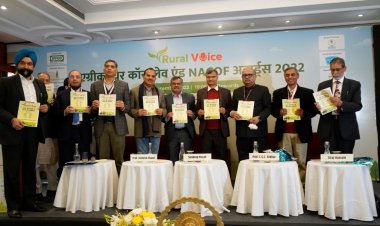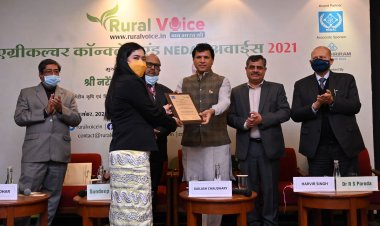Cultivation of short-duration varieties of rice for straw management
The cultivation of short-duration varieties of rice provides an extended window between the Kharif harvesting of paddy and the wheat sowing for Rabi, thereby giving sufficient time to rice cultivators for in situ management and removal of excess paddy straw.

The cultivation of short-duration varieties of rice provides an extended window between the Kharif harvesting of paddy and the wheat sowing for Rabi, thereby giving sufficient time to rice cultivators for in situ management and removal of excess paddy straw.
The varietal trait for height is inherent in self-pollinated crops like paddy. The dwarf varieties have less production of straw as compared to the tall ones.
The Indian Council of Agricultural Research (ICAR) and the State Agriculture Universities (SAUs) have developed high-yielding short-duration Basmati rice varieties, including Pusa Basmati 1509 (115 days), Pusa Basmati 1692 (115 days) and Pusa Basmati 1847 (125 days) and non-basmati category, aromatic rice varieties PR 126 (120-125 days), Pusa Sugandh 5 (125 days) and Pusa 1612 (120 days).
These early-maturing varieties get ready 20-25 days in advance, thus enabling farmers for straw management and for preparation of the fields for wheat sowing.
The Department of Agriculture and Farmers Welfare is implementing the National Food Security Mission (NFSM) to increase the production and productivity of foodgrain crops, including rice.
Various interventions such as cluster demonstrations on direct seeded rice, line transplanting, stress-tolerant varieties, etc., distribution of quality seeds of high-yielding varieties, including short-duration varieties and hybrids, micro-nutrients, soil ameliorants, plant protection chemicals, farm equipment and machinery are implemented to increase rice production and productivity.



 Join the RuralVoice whatsapp group
Join the RuralVoice whatsapp group









































